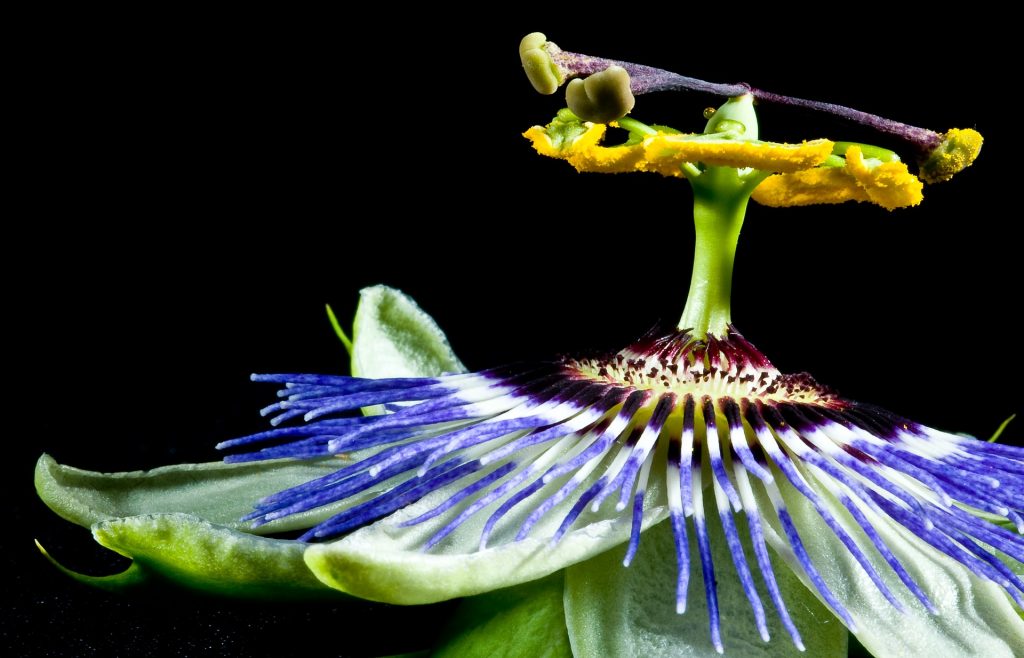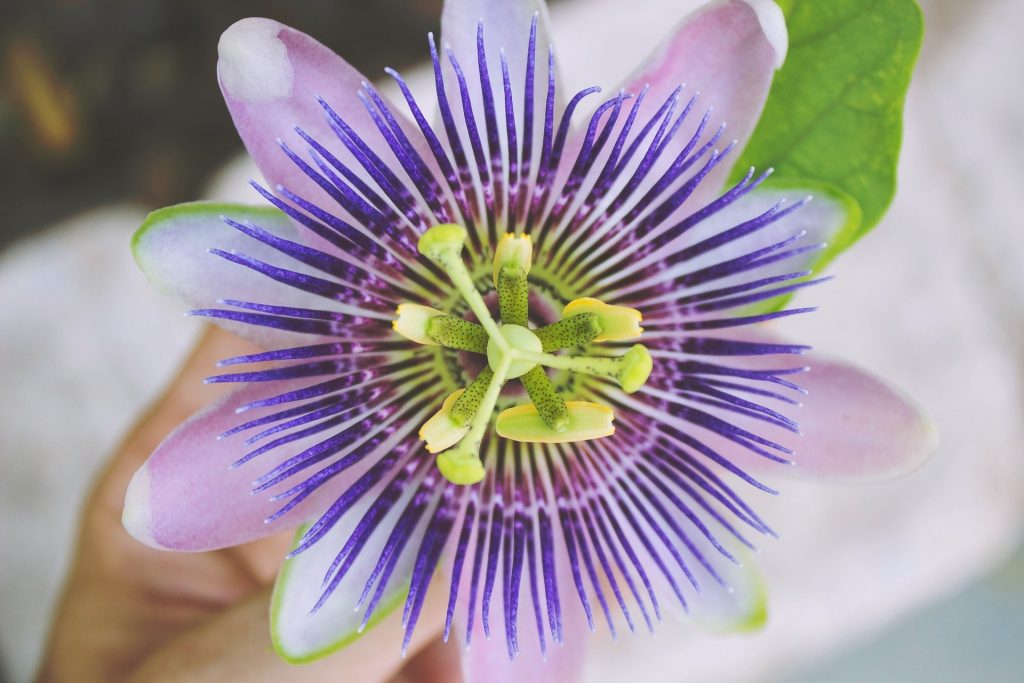 One of the main treatments for generalised anxiety disorder is the use of benzodiazepine drugs. However, the use of benzodiazepine drugs is controversial because only about 25 to 30 % of individuals respond positively to their use. In addition, tolerance to the drugs can quickly develop, such that they lose their effectiveness over time. The side effects of benzodiazepines can also include sedation and cognitive impairment. Serious withdrawal symptoms including anxiety and irritability can also occur on cessation of the drugs. As a result of the detrimental effects of taking benzodiazepines, many of those with mild to moderate anxiety choose to use natural alternatives that have a better safety record. Herbal remedies are often self medicated in this way, and many have been shown to have highly beneficial effects in the treatment of generalised anxiety disorder (GAD). Passion flower (Passiflora incarnata) has been shown to be one such natural remedy that might be effective at treating mild to moderate anxiety.
One of the main treatments for generalised anxiety disorder is the use of benzodiazepine drugs. However, the use of benzodiazepine drugs is controversial because only about 25 to 30 % of individuals respond positively to their use. In addition, tolerance to the drugs can quickly develop, such that they lose their effectiveness over time. The side effects of benzodiazepines can also include sedation and cognitive impairment. Serious withdrawal symptoms including anxiety and irritability can also occur on cessation of the drugs. As a result of the detrimental effects of taking benzodiazepines, many of those with mild to moderate anxiety choose to use natural alternatives that have a better safety record. Herbal remedies are often self medicated in this way, and many have been shown to have highly beneficial effects in the treatment of generalised anxiety disorder (GAD). Passion flower (Passiflora incarnata) has been shown to be one such natural remedy that might be effective at treating mild to moderate anxiety.

Animal studies have also shown the effective anxiolytic effects of passion flower. For example, a number of studies have used an extract of passion flower to exert anxiolytic effects in mice exposed to stress. One of these studies showed that at high and low doses the passion flower was not effective, but at moderate doses it was effective at decreasing anxiety. This suggests that there may be a U-shaped curve to the effects of passion flower. Passionflower is known to contain a number of flavonoids including apigenin, luteolin, quercetin, kaempferol, homoorientin, orientin, vitexin, and isovitexin. Besides flavonoids, various indole alkaloids including harman, harmine, harmalol and harmaline are present in passion flower. These constituents may confer some or all of the effects of the extract. In particular, flavones (a subgroup of the flavonoids) have been shown to interact with the benzodiazepine receptor in humans and animals.
For example, in one study 36 patients with generalised anxiety disorder (GAD) were administered 45 drops of passion flower extract per day or 30 mg of the benzodiazepine drug oxazepam per day for 4 weeks. Following 4 weeks of treatment, there was a significant improvement in both the passion flower and oxazepam group, but neither treatment was more effective than the other. However, the effects of oxazepam were more rapid in their onset, but there were significant detrimental effects including job impairment associated with its use. In another study, researchers administered 500 mg of oral passion flower or a placebo 90 minutes before surgery to a group of patients. The passionflower contained 1 mg of benzoflavones, possible active compounds, thought to contribute to the effects of the plant. The anxiety experienced by the passion flower group was significantly lower than the placebo group.

It has been suggested that the flavone chrysin may be particularly important in conferring anxiolytic properties on passion flower extracts. A glycoside of chrysin was detected in a passion flower extract that was shown to have anxiolytic and sedative effects in mice. Studies confirm that passion flower extracts cause an activation of the benzodiazepine receptor, suggesting that the flavonoids in the extract may activate the GABA neurotransmitter system. This may be how the extracts are able to exert their effects.
Therefore passion flower may be a useful treatment for moderate to mild anxiety in humans. Its effectiveness appears to be present in both liquid tincture forms as well as solid tablets. Passion flower may also have benefits through its ability to induce sleep. The hypnotic and sedative effects of passion flower tea were investigated on a group of healthy subjects. Subjects consumed either 2 g of dried passion flower leaves, stems, seeds and flowers as a decoction in hot water, or 2 g of dried parsley (Petroselinum crispum) as a control tea. The results of the study showed that passion flower tea produced a significantly improved sleep quality in the subjects compared to the parsley tea. Anxiety is often associated with a disruption to sleep and so improving sleep quality can help to reduce some of the effects of anxiety, including tiredness and irritability. Being asleep rather than lying awake in bed also reduces the time exposed to worrying thoughts and will almost certainly help with regeneration and recuperation of mental capacity.
Eat Well, Stay Healthy, Protect Yourself
RdB
